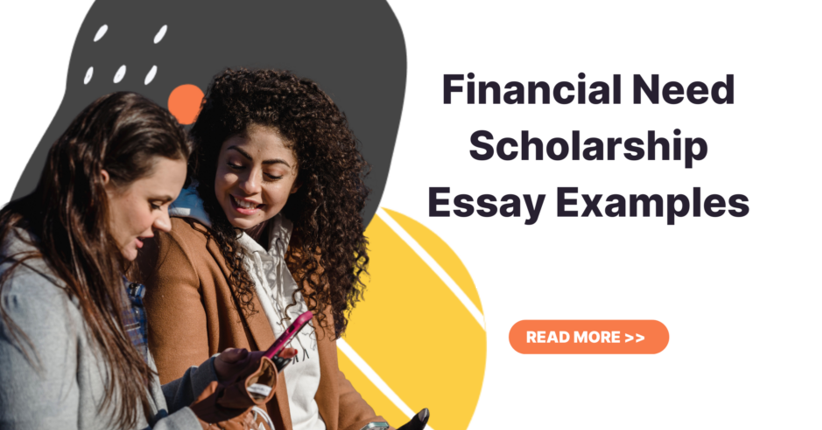- PRO Courses Guides New Tech Help Pro Expert Videos About wikiHow Pro Upgrade Sign In
- EDIT Edit this Article
- EXPLORE Tech Help Pro About Us Random Article Quizzes Request a New Article Community Dashboard This Or That Game Forums Popular Categories Arts and Entertainment Artwork Books Movies Computers and Electronics Computers Phone Skills Technology Hacks Health Men's Health Mental Health Women's Health Relationships Dating Love Relationship Issues Hobbies and Crafts Crafts Drawing Games Education & Communication Communication Skills Personal Development Studying Personal Care and Style Fashion Hair Care Personal Hygiene Youth Personal Care School Stuff Dating All Categories Arts and Entertainment Finance and Business Home and Garden Relationship Quizzes Cars & Other Vehicles Food and Entertaining Personal Care and Style Sports and Fitness Computers and Electronics Health Pets and Animals Travel Education & Communication Hobbies and Crafts Philosophy and Religion Work World Family Life Holidays and Traditions Relationships Youth
- Browse Articles
- Learn Something New
- Quizzes Hot
- Happiness Hub
- This Or That Game
- Train Your Brain
- Explore More
- Support wikiHow
- About wikiHow
- Log in / Sign up
- Education and Communications
- College University and Postgraduate
- Student Finances

How to Write a Financial Aid Statement
Last Updated: September 3, 2024 Fact Checked
This article was co-authored by Michael R. Lewis . Michael R. Lewis is a retired corporate executive, entrepreneur, and investment advisor in Texas. He has over 40 years of experience in business and finance, including as a Vice President for Blue Cross Blue Shield of Texas. He has a BBA in Industrial Management from the University of Texas at Austin. There are 16 references cited in this article, which can be found at the bottom of the page. This article has been fact-checked, ensuring the accuracy of any cited facts and confirming the authority of its sources. This article has been viewed 564,719 times.
The financial aid statement is a simple, short piece of writing that students may include on a financial aid letter, in an essay, or in other communications to a financial aid department. The financial aid statement may not be a full communication on its own, but rather an element of a more complex financial aid appeal. If you need to write such a statement in order to reach out to a university or college's financial aid office, follow some basic steps.
Sample Statements and Things to Include

Writing a Statement of Financial Need

- For example, you could write the following: “My parents moved to the United States from Albania in order to give us better opportunities. As their oldest child, I will be the first in our family to attend college.”

- For example, write something like this: “I have worked to help support my family since I was 16 years old. Currently, I work on the weekends as a waitress to support myself. My parents also give me what they can each month. Since my parents didn’t speak English when we moved here, it was very difficult for them to support our family. My mother worked many hours as a housekeeper in a hotel. They saved what they could, but we do not have enough savings to pay for my college education."

- For example: “My earnings from my weekend job cover my living expenses. I worked extra shifts over the summer and saved enough to pay for a portion of this year’s tuition. However, I am seeking aid for the portion of the tuition I cannot cover on my own.”

- For example: “Receiving financial aid will allow me to focus on my studies during the week without having to worry about earning extra money. I would continue to work on the weekends to cover my living expenses, but I would be able to keep the weekdays free to focus solely on my school work.”

- For example: “Thank you for considering my application. I look forward to discussing my opportunities with you.”
Writing a Statement for a Scholarship

- For example: “I am applying for this scholarship in order to further my studies in education. My long-term goal is to work as an ESL teacher in an inner city environment. My academic, work and personal experiences have lead me to this career goal.”

- For example: “I graduated from my undergraduate institution with a 4.0 GPA. I had a double major of Elementary Education and Spanish, with a minor in Sociology. I applied for and received a prestigious internship working with the state government on developing educational policies.”

- For example: “My parents moved our family to this country from Albania when I was 12 years old. I did not speak any English when we arrived. The ESL teachers in my school helped me to be successful in school, and I want to do the same for other students in my circumstances.”

- For example: “Each summer, I volunteer for the Migrant Workers Education Association in Chester County, Pennsylvania. They service migrant workers who come here from Mexico to work on mushroom farms. We not only link families with community services, but we also tutor children in English and help them learn important school skills that will allow them to be successful in school.”

- For example: “My experiences as an ESL student and an English tutor have taught me the value of helping children to feel successful and empowered. I know the meaning of hard work, and I have learned how to overcome challenges in my own personal and academic life.”

Making Your Personal Statement Successful

Expert Q&A
You might also like.

- ↑ https://thepef.org/wp-content/uploads/2023/09/2023_Financial-Need-Example.pdf
- ↑ https://www.sec.gov/about/reports-publications/investorpubsbegfinstmtguide
- ↑ https://www.business.qld.gov.au/running-business/finance/essentials/statements
- ↑ https://www.bursar.psu.edu/financial-aid-and-your-statement
- ↑ https://www.pierce.ctc.edu/scholarships-essay-tips
- ↑ https://www.laguardia.edu/uploadedfiles/main_site/content/supporters_friends/docs/scholarship_personal_statement.pdf
- ↑ https://finaid.med.ufl.edu/scholarships/writing-the-scholarship-essay/
- ↑ https://scholarships360.org/financial-aid/how-to-write-a-statement-of-financial-need/
- ↑ https://custom-writing.org/blog/financial-needs-essay
- ↑ https://financialaid.ucdavis.edu/scholarships/tips/personal
- ↑ https://www.memphis.edu/spain/pdfs/killer-personal-statement-guide.pdf
- ↑ https://www.laep.org/wp-content/uploads/2015/06/Personal-Statement.-Student-Guide-College-Day.pdf
- ↑ https://nationalscholarships.syr.edu/student-resources/student-resources/writing-personal-statements/
- ↑ https://www.icms.edu.au/news/how-to-write-a-great-personal-statement/
- ↑ https://asc.dso.iastate.edu/files/documents/Personal%20Statements%20%26amp%3Bamp%3B%20Scholarship%20Essays%202023%281%29.pdf
- ↑ https://www.clarku.edu/offices/scholarships-fellowships/wp-content/blogs.dir/3/files/sites/87/2020/01/Writing-a-Personal-Statement.pdf
About This Article

If you’re writing a statement of financial need, make it personal by sharing information about yourself and what's motivating you to pursue your studies. Try to be authentic, to write honestly about what you've already accomplished and what you hope to do with your education. Use specific examples if you can to reinforce the points you're trying to make. Finally, be sure to start your first draft early enough to get feedback from teachers or advisers and make revisions before you submit it. For more advice from our reviewer, including how to write a statement for a scholarship, keep reading! Did this summary help you? Yes No
- Send fan mail to authors
Reader Success Stories
Feb 6, 2017
Did this article help you?
Zarina Tokhtaeva
Apr 5, 2016
Mar 9, 2017
Mar 29, 2017
Mar 22, 2019

Featured Articles

Trending Articles

Watch Articles

- Terms of Use
- Privacy Policy
- Do Not Sell or Share My Info
- Not Selling Info
Get all the best how-tos!
Sign up for wikiHow's weekly email newsletter
- Applying For Scholarships
Financial Need Scholarship Essay Examples (2024)
Jennifer Finetti Oct 10, 2024

Get our best scholarship practices, insights & tips delivered to your inbox
Thank you for subscribing!
Many scholarships are awarded based on financial need. In order to win these scholarships, you must explain the nature of your financial need. In the guide below, we’ll explain how to write these types of essays to increase your chances of winning. Check out these scholarship essay examples for financial need scholarships.
How to write financial need scholarship essays
Here are some tips for writing financial need scholarship essays:
- Maintain a positive tone throughout the essay . You do not want to come across as self-pitying. Focus on ways you learned and grew from past experiences – how they made you stronger.
- Do not diminish other people’s suffering. This is a competition, but that doesn’t mean you should belittle your competitors. In fact, it would be better to say “I know there are many worthy candidates for this scholarship, but…” than to say “I have suffered far more than…” Show respect in everything you write.
- Frame your essay around a specific event. You may add other details if you have space to, but use one experience as the thesis for your essay.
- Avoid controversial statements and opinions. When discussing events from your past, do not belittle someone else or talk negatively about a group of people. You never know who will be reading your essay.
- Tell your story with honesty. Do not fabricate any details to make yourself sound needy. Your past and present circumstances will speak for themselves.
- Don’t try to sound philosophical. Some students will do this because they think it makes them seem smarter, but it rarely has that effect. Focus on proofreading and writing solid content. That is enough intelligence on its own.
- Discuss your career goals, if possible. You may not have room for this if the essay is short. If you do have room though, discussing your career goals will indicate a plan for the future. Review boards reward determination.
You know why you need financial aid. Tap into the key elements of your circumstances and use them to craft the perfect essay.
Many scholarships are awarded based on financial need. In order to win these scholarships, you must explain the nature of your financial need. In the guide below, we’ve provided examples of scholarship essays for financial need scholarships, along with some tips to help you write your own essay.
The fastest path to earning scholarships
Simplify and focus your application process with the one-stop platform for vetted scholarships.
Example 1: “Provide a statement of financial need”
Some scholarships will simply ask for a statement of financial need. There are no parameters to follow. You’re left to write whatever you want. Typically, a statement of financial need is two or three small paragraphs. This will come out to roughly 150-200 words, but it could be slightly longer. Think of this as a cover letter for your scholarship application, highlighting the key elements of your financial need. Don’t build up to the thesis. Get directly to the point.
I am the first person in my family to graduate high school, and thus the first to attend college. Both of my parents dropped out of school when they were teenagers. Because of their limited education, they have always worked in entry-level positions, earning barely enough to put food on the table. My first job I got was at the age of 12 delivering papers, and I have worked hard ever since to relieve pressure from my family. I enrolled in Mississippi’s HELP program during my senior year, which covers tuition and fees at select colleges in the state. I also have a Federal Pell Grant to cover my housing. However, I still need funding for books, supplies, and transportation to campus as needed. I am an engineering student, and our classes come with high fees. My parents cannot contribute to my college expenses, and I cannot work much while I’m in school. This scholarship would help me avoid costly student loans that could take years to repay.
Example 2: “Describe your financial need in 100 words”
This essay is even shorter than the financial need statement. It may be one of several short answer questions you need to fill out. Working with 100 words is tricky. That only leaves room for about 7-10 sentences, depending on length. Make compelling statements using the fewest words possible.
Also note that grammar errors and misspellings will be much more noticeable in this short essay. Carefully proofread your writing before submitting the scholarship application.
I got pregnant and dropped out of high school when I was 15. By the age of 20, I had two more children, and we all shared a one-bedroom apartment. I worked three jobs to pay the bills, but I never earned much. When my oldest started high school, I did the same. I got my GED at 29 and enrolled in nursing school. My financial status has improved now with a GED, but I’m still a single mom with three kids. I want to become a registered nurse to give my children a stable future. I appreciate your consideration.
Word Count: 100
Example 3: “Explain your financial need in 500 or more words”
This scholarship essay prompt is the opposite of the one above. You have much more room to discuss your circumstances. Talk about your family life, your income, and other restraints that contribute to your financial aid . Try not to throw too much in the essay though. You want the information to flow together seamlessly. Edit carefully, and give the readers a full view of your situation.
My name is Brandon Noviello. I am a sophomore on track to earn my Bachelor of Arts in Sociology. I need financial aid because I do not have a family to contribute to my education. I was in foster care for two years before I aged out of the system, and now I am pursuing a degree completely on my own. I was raised by a wonderful woman who didn’t always have a wonderful life. My mother got pregnant after a sexual assault, but she was determined to raise a smart, successful man. She went through an accelerated program to graduate high school before I was born. She devoted the rest of her life to supporting me, both financially and emotionally. My mother’s family cut ties with her the moment she became pregnant. Life wasn’t easy for us, but I never wanted for anything. She always found a way to keep me fed, dressed, and in school. Unfortunately, she lost a long-term battle with depression when I was 16, and I was put into the foster system until I reached adulthood. I did not have a positive experience with foster care, but I admit, I had no desire to. My mother’s passing weighed heavily on my mind, and I felt an overwhelming sense of anger, regret, and frustration. There was one gleam of hope in my experience though. I had a great social worker. I fought her decisions every step of the way, and she still managed to find a family to get me through high school. My social worker was the only person I invited to my graduation ceremony. She helped me realize how much one person’s efforts can make a difference in the lives of others. I was only one of countless children she had helped over the years. I researched how to become a social worker so I could help other children like me. My plan is to work with the Department of Human Services in the foster care and adoption division after I graduate. In order to make my dreams a reality, I need financial aid. I am working as a server to pay for food, utilities, and basic necessities, but I do not earn enough to pay for college as well. I go to school during the day and work at night. Furthermore, I have a maximum Pell Grant to cover most of my tuition, but I still need help with other expenses. I did not do well in high school as a result of my mom’s passing, but I have done well in college. I have a 3.25 cumulative GPA, and I have never made less than an A in a degree-related course. As such, I am committed to being successful despite my circumstances, and I want to help young people find that motivation within themselves. I look forward to working with children and teens in the foster system, so I can be the hope that someone else was for me.
Word Count: 498
YOU SHOULD ALSO READ
How to Write a Great 250-Word Essay
How to Write a Great 500 Word Essay
How to Write a Scholarship Essay Introduction (With Example)
How to End a Scholarship Essay
Who Should I Ask to Write My Letter of Recommendation?
- Scholarship Essay

Jennifer Finetti
Jennifer brings over 20 years experience in edtech, marketing, communications, content development, academic advising, and financial aid & scholarship counseling to ScholarshipOwl. She is also a marketing consultant and content developer for Diablo Valley College in Pleasant Hill, California, where she writes the college's biannual publication, DVC Magazine. Jennifer is a college financial aid and scholarship expert who has been seen on news segments across the country as well as in USA Today, CNBC, and Yahoo! Finance. She earned her MA in Counseling Psychology from National University, and her BA in Psychology from University of California, Santa Cruz.
Related Stories View All

Scholarship Spotlight: Know Your Worth No Essay Scholarship

How to Answer These Common Scholarship Interview Questions

Common Scholarship Interview Questions and Answers
Get started with scholarshipowl.
Simplify and focus your application process with the one-stop platform for vetted scholarships


Quick Tips for Students to Write Impressive Thesis Statements

When it comes to writing academic essays most students struggle with crafting a strong thesis statement. A case study from a Chinese University published on ResearchGate mentions that 70% of students find academic writing hard and 15.69% refer to it as extremely hard. Only 13.73% of the students said that academic writing is easy.
At the beginning of my college days, I also struggled with writing thesis statements. I was like always wondering how to express my thoughts in one or two sentences.
But as you know for students crafting a good one is important. Over time, I learned a few simple tricks that made writing thesis statements a lot easier. And honestly, a lot less stressful.
In this blog post, I want to share those quick tips with you. So as a student, you no longer struggle to write impressive statements.
The Basics of a Thesis Statement
A thesis statement is a single or two sentence that sums up the main point or argument you are making in a research paper or essay. You had to toss these sentences in the introduction because that is what is considered a rule. The purpose of writing it is to tell the readers exactly what to expect from the rest of the text.
Below I have listed the key elements that make a good thesis statement.
- Clear and Simple – It should be easy to understand.
- Arguable – It presents an idea that can be debated.
- Specific – It focuses on one main idea, not too broad.
- Answers the Question – It directly responds to the essay prompt.
- States Your Opinion – It shows your point of view or argument.
- Gives a Plan – It hints at what your essay will cover.
6 Tips to Write an Impressive Thesis Statement
Now that we have peeked into the basics let’s come to the main point. How do I write a thesis statement that sounds impressive? Below I have shared 6 tips that will help you in crafting one.
1. Tell What Your Thesis Should Do
Your thesis statement is like a guide for your essay readers. It should tell them exactly what your main argument is and what they can expect from the rest of your writing. Think of it as giving readers a clear direction. Without this, your essay can feel scattered or confusing.
A strong thesis does two things:
- Answers the main question or problem
- Explains why it matters
Once clear on these things you’ll be able to keep your writing focused and craft an impactful statement.
2. Be Clear and Get to the Point
A good thesis statement is not made up of fancy words. It is easy to understand. Plus, there is no suspense, and it goes straight to the point. Because if your thesis is vague or too complex, it can confuse readers and weaken the argument.
Let me clarify this by giving you an example.
Suppose you are writing on the climate change topic.
Instead of writing sentences like “Many factors affect climate change” you should be clearer. You can write it like “Reducing greenhouse gas emissions is the effective way to combat climate change.”
See the difference? The second statement seems to be more specific and leaves no room for guesswork.
3. Make a Bold, Arguable Statement
To impress your readers with a thesis statement consider making it bold and arguable. This will make your writing more engaging and meaningful.
For example, instead of writing, “ Online education has benefits,” you should try something bolder. Like, “Online education is more effective than traditional classrooms.”
The second statement is not just a fact. It feels like an argument that invites discussion. This approach will show confidence in your point and give your essay a purpose.
4. Keep It in Limits
A thesis statement should not be very long or overly detailed. Instead, it should be concise. In general, one or two sentences are considered ideal. Because they are enough to present an idea.
Look at the statement I shared below.
“This essay will discuss how social media affects mental health, particularly in teenagers, by increasing anxiety, lowering self-esteem, and creating unrealistic standards.”
It’s a completely wrong approach. You should keep it concise. If you find it too difficult to concise sentences, then you can get assistance from summarizing tools. As you can see below I have generated a shorter version of the above statement using one such tool.

5. Stay On Track with Your Topic
Good thesis statements always stick to the main topic. Wandering off the topic can confuse readers. It will make your argument difficult to understand.
For example, if your essay is about “The benefits of adopting renewable energy,” your statement should focus on that specific point. You might write it like, “Renewable energy reduces environmental damage and ensures long-term economic growth.”
If you ever feel stuck at a point, get assistance from a thesis generator tool. They can help you frame ideas and ensure the result matches your essay's topic. This way you will stay aligned with the essay's purpose and craft an impressive statement.
As you can see below I have generated different versions of the statement of the topic I mentioned above in the example. The tool I used allowed me to choose among different types. I prefer the argumentative and got the following results.

6. Polish and Perfect Your Statement
The first draft of a thesis statement might not be perfect. No need to worry, that’s okay. The key is to refine it until it’s free from errors.
Take time to read it aloud and ask yourself:
- Does it answer the main question?
- Is it focused?
- Does it grab attention?
- Is it free from grammatical mistakes?
- Is it good in readability?
Small adjustments like choosing the right words or rephrasing for clarity can make a big difference. Plus, don’t forget to check for grammar errors. Use online grammar-checking tools for assistance.
1. How long should a thesis statement be?
In general, it is recommended to write a thesis statement between one and two sentences. However, this number can vary with the specific requirements of an institute.
2. Can a thesis statement be a question?
No, a thesis statement cannot be a question. Instead, it is meant to answer the question or give a solution to a problem.
3. Where does the thesis statement go?
In academic writing, a thesis statement usually goes at the end of the introductory paragraph.
4. How do you test a thesis statement?
To test your thesis statement read the text carefully and ask yourself the following:
- Is it arguable?
- Is it specific?
- Does it answer the question?
- Can it be supported?
Writing a strong thesis statement might feel challenging at first. But using the approach I have described above you can craft one that’s impressive with ease. Stay confident, and practice using the tips above. I am quite hopeful that by doing this you'll be able to write thesis statements that make your essays stand out.
College Planning
Thriving in college: a practical guide for success, a guide for students pursuing a career in accounting, how technology is leveling the playing field for low-income students, tips for managing your student budget when studying abroad, wellness tips for aspiring nurses preparing exams, student life on wheels: budget-friendly tips to afford a car as a student, how financial aid and continuing education empower future builders, how to start earning passive income while in college, tired of writing scholarship essays.
We don't blame you! Take a break from writing and apply for our Recycled Essay Scholarship today.

Useful insight and advice in your inbox.

News & Advice

Financial Need Essay: Examples & Writing Guide
Unfortunately, not everyone striving for education can afford it. Some courses are so expensive that even well-to-do citizens need financial assistance. They can write a scholarship application letter or refuse the undertaking. In such a case, students are supposed to submit a financial need essay.
Funding authorities cannot assist each student. That is why you need to assure them in your statement of financial need that you deserve the scholarship more than anyone else.
If you’re looking for financial need scholarship essay examples, we’ve got you covered. This article by Custom-Writing experts will provide you with a clear explanation of the statement’s structure and a well-written essay sample.
- ✅ What to Include
- 💰 Reasons for Financial Aid
- 🚫 Mistakes to Avoid
- 👀 Essay Sample
🔗 References
✅ statement of financial need: what to include.
This type of writing is a statement of a student’s life circumstances . But there is a limited number of aspects that you need to include. Otherwise, the committee will reject your request for financial aid as it will not look persuasive enough. Follow the next five steps to write a scholarship-winning essay. If you will still be unsure of how to write this kind of paper, explore the example in the next section.
- Introduce yourself. Your readers learn about you for the first time. It is polite to tell them who you are . Stress that you are the first person in your family who will attend a college. If you pertain to an ethnic group that may be underrepresented at the college, mention it.
- Explain how you’re now paying for college. Are you working to pay for your studies? Does this work take the time you could spend learning?
- Justify your financial need. Explain why you need assistance and the difficulties you meet in paying for your studies.
- Describe how you would benefit from the scholarship. Will you have to drop out if you are not given the scholarship? What will happen when you receive it? Explain that you will be able to study more if there is no need to work after classes.
- Make a closing statement . Do not beg and avoid being too emotional. Your essay should sound professional. Thank your readers for taking the time to consider your request.
Here, you can read about other secrets of scholarship essay writing .
💰 Reasons for “Why I Need Financial Aid” Essay
As you already know, you must include the reasons why you need financial aid in your essay. You might be wondering how to clarify your need correctly. Well, we can assist you with this step.
Check out the examples of reasons below to see how you may justify your eligibility for financial aid:
- Limited family income. This is the most widespread reason why you might need financial aid. The financial strain can be even worse if your siblings also attend college. You can explain how low income creates a financial challenge for your family that struggles to save money for education despite working hard.
- Significant financial obligations. Certain financial responsibilities can make it troublesome for a student to devote funds to education. These obligations can include debts, mortgages, or caring for a family member.
- Unexpected financial changes. Financial stability can be disrupted by unexpected financial changes, such as job loss, illness, or a natural disaster. If you experience any of these events, you can use them to justify your monetary need.
- Contribution to your community. You may also apply for financial aid if you volunteer or participate in community service. In this case, you can explain that your activity benefits the society but leaves you with little opportunity to make a living.
- Geographic challenges. Your expenses will differ depending on the cost of living in a particular region. High living expenses increase the financial strain on students, affecting everyday costs, housing, and tuition. This, in turn, is a good reason to receive financial aid.
- Unique educational needs. You can use this reason in your essay if you need supplementary technologies, resources, and specialized materials to learn effectively. Since all these accommodations are high-priced, financial aid will help create a more equitable learning environment.
- Multiple dependents. Some students are the only breadwinners in their families. They have to balance financially supporting their families and pursuing education. A grant will not only allow them to cover family expenses but also maintain a life-study balance.
- Independent student status. Finally, you can experience financial need if you’re an independent student . It means you don’t receive any financial help from your parents or guardians. If that’s your case, you can explain in your essay how a scholarship would help you handle the challenge of providing for yourself.
🚫 Financial Need Essay: Mistakes to Avoid
There are several big mistakes students can make in their scholarship essays. Make sure to avoid them in your statement:
- Negativity. A good financial need essay is not focusing solely on hardships. Instead, it should emphasize how you overcome challenges through your resilience and adaptability.
- Overestimated hardships . Not all life challenges are serious enough to earn you a scholarship. Make sure to mention only the most serious reasons for your application.
- Re-submitting essays . You might need to write several essays to apply for different financing opportunities. In this case, write a unique statement for each program. Do not send the same essay to all organizations.
👀 Statement of Financial Need Example
Paragraph #1 Introduction
I have seen how important learning is in everyone’s life since childhood. My parents did not have a chance to attend college as they had to earn their living. It affected their career, and the lack of education will be felt for the rest of their lives. We have never been a wealthy family, but my parents did their best to instill a love for learning in me.
Paragraph #2 How are you paying for college now?
Previously, I had to work 20 hours per week to support myself. My parents paid most of the tuition fees, but I did my best to relieve this burden. Due to the lockdown, their earnings were cut by half. So now I will have to work more or drop out of college.
Paragraph #3 Justify your financial need
Moreover, the next year’s curriculum includes more subjects. That is why I will not be able to work as much anymore. I could work night hours, but I am afraid it would worsen my results. In any case, I will do my best to cope with all assignments.
Paragraph #4 What are your benefits?
If I am awarded the scholarship, I will have plenty of time to dedicate myself to the studies. Education, service to others, and striving for a future career are my top priorities. This scholarship will be my motivation for achieving academic excellence.
Paragraph #5 Closing statement
Your kind consideration will be highly appreciated.
We hope that this short, but comprehensive guide will get your essay going! Good luck and be sure to check out our blog for more writing tips.
- Writing a Winning College Scholarship Essay | The Princeton Review
- 5 Ways to Make Your Scholarship Essay Stand Out – U.S. News
- How to Write a Scholarship Essay – Maryville University Online
- How Aid Is Calculated | Federal Student Aid
- Definition of need | Student Financial Aid | University of Missouri
- How need is determined | Student Financial Aid (UWashington)
- Share to Facebook
- Share to LinkedIn
- Share to email

About 40 million people worldwide are now digital nomads, representing 1.18% of the 3.4 billion people employed, and the trend is on the rise. Out of 131.8 million employees in the US, there are 17.3 million digital nomads, making up 13.13%. Surprisingly, 40% of them are over 40 years old,...
![thesis statement for financial aid Quieting Your Inner Critic – Self-Compassion and Other Methods [Guide for Students]](https://custom-writing.org/blog/wp-content/uploads/2024/03/side-view-woman-looking-up-1-284x153.jpg)
Have you ever found yourself stuck in a cycle of self-doubt and criticism, constantly feeling as though you’re not good enough? Since social rejection poses a genuine threat to our existence, our self-criticism steps in to protect us by shaming us before others can. It makes us feel inadequate to...

Have you ever struggled to remember the lecture you’ve just listened to while effortlessly recalling a catchy song from your childhood? Ever wonder why is it so? The information processing theory offers a glimpse into these processes. By delving into it, you can grasp how our brains tackle information and...

Disclaimer: Since we are true proponents of experiential learning, our introduction starts with an example, and the theory will come later. Pretty much everyone likes a chamomile plant. If you are one of the few who don’t, feel free to think of any other plant while you consider these two...

How often do you find yourself procrastinating and unmotivated to pursue your goals? What we call laziness is often a fear of failure, the pressure of high expectations, or a simple need for relaxation. These issues are so widespread today that we sometimes overlook them. But what if we revealed...

Academic probation is a period of academic evaluation where a student’s performance falls below the expected educational standard. Going through academic probation is not the apocalypse, even though it may initially feel like it. Academic probation serves as a wake-up call, prompting us to reevaluate our approach to studying and...

Did you know that top smartphone manufacturers continue to make those seemingly outdated push-button cell phones? They’re often dubbed ‘granny phones.’ While we strive to combat ageism in society, it persists. Individuals in their later years often resist changing their customary practices. But does our brain truly diminish with age,...

Learning styles are one of the most debatable concepts in American education. They represent a pillar that supports the educational industry. Moreover: Many teachers and caregivers believe that learning styles are inborn and define how successful the child will be in their future career and personal life. This article explains...

Non scholae sed vitae discimus – We don’t learn for school, but for life While for some people, lifelong learning is a buzzword from yet another New York Times bestseller, for others, it is a lifestyle. Learning throughout life means continuously seeking knowledge and expanding your horizons, regardless of your...

You might think it’s unrealistic to invest as a student. When we’re young, we have lots of time and not much finances. As we get older, we often have more money and responsibilities and less time. But thanks to modern technologies, investing in 2024 is multifaceted and more accessible. You...

Students in today’s classrooms reflect a vibrant tapestry of ethnic backgrounds and cultural identities. It’s no surprise: in recent years, racial diversity in US public schools has increased dramatically. According to research led by the National Center for Education Statistics, more than half of all students are representatives of ethnic...
![thesis statement for financial aid How to Organize a Successful Study Group [GUIDE]](https://custom-writing.org/blog/wp-content/uploads/2023/04/doing-homework-together-1-284x153.jpg)
Are you looking for actionable ways to retain information? If so, you’re not alone. In fact, many students find that conventional learning methods, such as lectures and textbooks, aren’t enough to help them remember and comprehend facts or concepts. But did you know that discussing topics and teaching others can...
Thank you for the financial need essay writing tips you have posted. They are very helpful! I’ll return to this blog for more useful guidelines for writing papers!
Ha, fully posting! How to ask for money? Yeah, it is a great idea to write a financial need essay in a humorous manner.
What are your chances of acceptance?
Calculate for all schools, your chance of acceptance.
Your chancing factors
Extracurriculars.
How to Write a Strong Thesis Statement: 4 Steps + Examples

What’s Covered:
What is the purpose of a thesis statement, writing a good thesis statement: 4 steps, common pitfalls to avoid, where to get your essay edited for free.
When you set out to write an essay, there has to be some kind of point to it, right? Otherwise, your essay would just be a big jumble of word salad that makes absolutely no sense. An essay needs a central point that ties into everything else. That main point is called a thesis statement, and it’s the core of any essay or research paper.
You may hear about Master degree candidates writing a thesis, and that is an entire paper–not to be confused with the thesis statement, which is typically one sentence that contains your paper’s focus.
Read on to learn more about thesis statements and how to write them. We’ve also included some solid examples for you to reference.
Typically the last sentence of your introductory paragraph, the thesis statement serves as the roadmap for your essay. When your reader gets to the thesis statement, they should have a clear outline of your main point, as well as the information you’ll be presenting in order to either prove or support your point.
The thesis statement should not be confused for a topic sentence , which is the first sentence of every paragraph in your essay. If you need help writing topic sentences, numerous resources are available. Topic sentences should go along with your thesis statement, though.
Since the thesis statement is the most important sentence of your entire essay or paper, it’s imperative that you get this part right. Otherwise, your paper will not have a good flow and will seem disjointed. That’s why it’s vital not to rush through developing one. It’s a methodical process with steps that you need to follow in order to create the best thesis statement possible.
Step 1: Decide what kind of paper you’re writing
When you’re assigned an essay, there are several different types you may get. Argumentative essays are designed to get the reader to agree with you on a topic. Informative or expository essays present information to the reader. Analytical essays offer up a point and then expand on it by analyzing relevant information. Thesis statements can look and sound different based on the type of paper you’re writing. For example:
- Argumentative: The United States needs a viable third political party to decrease bipartisanship, increase options, and help reduce corruption in government.
- Informative: The Libertarian party has thrown off elections before by gaining enough support in states to get on the ballot and by taking away crucial votes from candidates.
- Analytical: An analysis of past presidential elections shows that while third party votes may have been the minority, they did affect the outcome of the elections in 2020, 2016, and beyond.
Step 2: Figure out what point you want to make
Once you know what type of paper you’re writing, you then need to figure out the point you want to make with your thesis statement, and subsequently, your paper. In other words, you need to decide to answer a question about something, such as:
- What impact did reality TV have on American society?
- How has the musical Hamilton affected perception of American history?
- Why do I want to major in [chosen major here]?
If you have an argumentative essay, then you will be writing about an opinion. To make it easier, you may want to choose an opinion that you feel passionate about so that you’re writing about something that interests you. For example, if you have an interest in preserving the environment, you may want to choose a topic that relates to that.
If you’re writing your college essay and they ask why you want to attend that school, you may want to have a main point and back it up with information, something along the lines of:
“Attending Harvard University would benefit me both academically and professionally, as it would give me a strong knowledge base upon which to build my career, develop my network, and hopefully give me an advantage in my chosen field.”
Step 3: Determine what information you’ll use to back up your point
Once you have the point you want to make, you need to figure out how you plan to back it up throughout the rest of your essay. Without this information, it will be hard to either prove or argue the main point of your thesis statement. If you decide to write about the Hamilton example, you may decide to address any falsehoods that the writer put into the musical, such as:
“The musical Hamilton, while accurate in many ways, leaves out key parts of American history, presents a nationalist view of founding fathers, and downplays the racism of the times.”
Once you’ve written your initial working thesis statement, you’ll then need to get information to back that up. For example, the musical completely leaves out Benjamin Franklin, portrays the founding fathers in a nationalist way that is too complimentary, and shows Hamilton as a staunch abolitionist despite the fact that his family likely did own slaves.
Step 4: Revise and refine your thesis statement before you start writing
Read through your thesis statement several times before you begin to compose your full essay. You need to make sure the statement is ironclad, since it is the foundation of the entire paper. Edit it or have a peer review it for you to make sure everything makes sense and that you feel like you can truly write a paper on the topic. Once you’ve done that, you can then begin writing your paper.
When writing a thesis statement, there are some common pitfalls you should avoid so that your paper can be as solid as possible. Make sure you always edit the thesis statement before you do anything else. You also want to ensure that the thesis statement is clear and concise. Don’t make your reader hunt for your point. Finally, put your thesis statement at the end of the first paragraph and have your introduction flow toward that statement. Your reader will expect to find your statement in its traditional spot.
If you’re having trouble getting started, or need some guidance on your essay, there are tools available that can help you. CollegeVine offers a free peer essay review tool where one of your peers can read through your essay and provide you with valuable feedback. Getting essay feedback from a peer can help you wow your instructor or college admissions officer with an impactful essay that effectively illustrates your point.

Related CollegeVine Blog Posts


IMAGES
COMMENTS
Sep 3, 2024 · The financial aid statement is a simple, short piece of writing that students may include on a financial aid letter, in an essay, or in other communications to a financial aid department. The financial aid statement may not be a full communication on its own, but rather an element of a more complex financial aid appeal. If you need to write ...
Oct 10, 2024 · Example 1: “Provide a statement of financial need” Some scholarships will simply ask for a statement of financial need. There are no parameters to follow. You’re left to write whatever you want. Typically, a statement of financial need is two or three small paragraphs. This will come out to roughly 150-200 words, but it could be slightly ...
Dec 3, 2024 · When it comes to writing academic essays most students struggle with crafting a strong thesis statement. A case study from a Chinese University published on ResearchGate mentions that 70% of students find academic writing hard and 15.69% refer to it as extremely hard.
Oct 1, 2024 · Types of Thesis Statements: Examples for Different Paper Styles. Depending on the type of paper you are writing, you’ll have different formats and rules. Here’s an example of a thesis statement for each type of paper: 1. Analytical Thesis Statement. An analytical paper breaks a topic down and explains its parts.
• write a thesis statement and supporting arguments that logically align • revise a thesis statement so that it aligns with existing supporting arguments PART 1: ARGUABLE THESES VERSUS STATEMENTS OF FACT In Parts 2 and 3 of this lesson, you will explore two different approaches you can use to write a thesis statement.
Nov 9, 2024 · This, in turn, is a good reason to receive financial aid. Unique educational needs. You can use this reason in your essay if you need supplementary technologies, resources, and specialized materials to learn effectively. Since all these accommodations are high-priced, financial aid will help create a more equitable learning environment.
Jun 24, 2021 · The thesis statement should not be confused for a topic sentence, which is the first sentence of every paragraph in your essay. If you need help writing topic sentences, numerous resources are available. Topic sentences should go along with your thesis statement, though. Writing a Good Thesis Statement: 4 Steps
Jan 11, 2019 · The best thesis statements are: Concise: A good thesis statement is short and sweet—don’t use more words than necessary. State your point clearly and directly in one or two sentences. Contentious: Your thesis shouldn’t be a simple statement of fact that everyone already knows. A good thesis statement is a claim that requires further ...
Jan 14, 2020 · By organizing my thoughts and breaking down the information, it made forming the thesis a much easier task. STEP THREE: Don’t assume your thesis statement is set in stone. That’s right, thesis statements can change. Sometimes you form this amazing thesis statement, only to find that as you write your paper, you stray from your main point.
• Try and avoid using a three-pronged thesis statement. Experienced, creative writers aim to make a general claim and avoid the standard “five paragraph essay.” Expository (Explanatory) Thesis Statements . An expository paper explains something to the reader. An expository thesis statement details: 1. What you are going to explain 2.